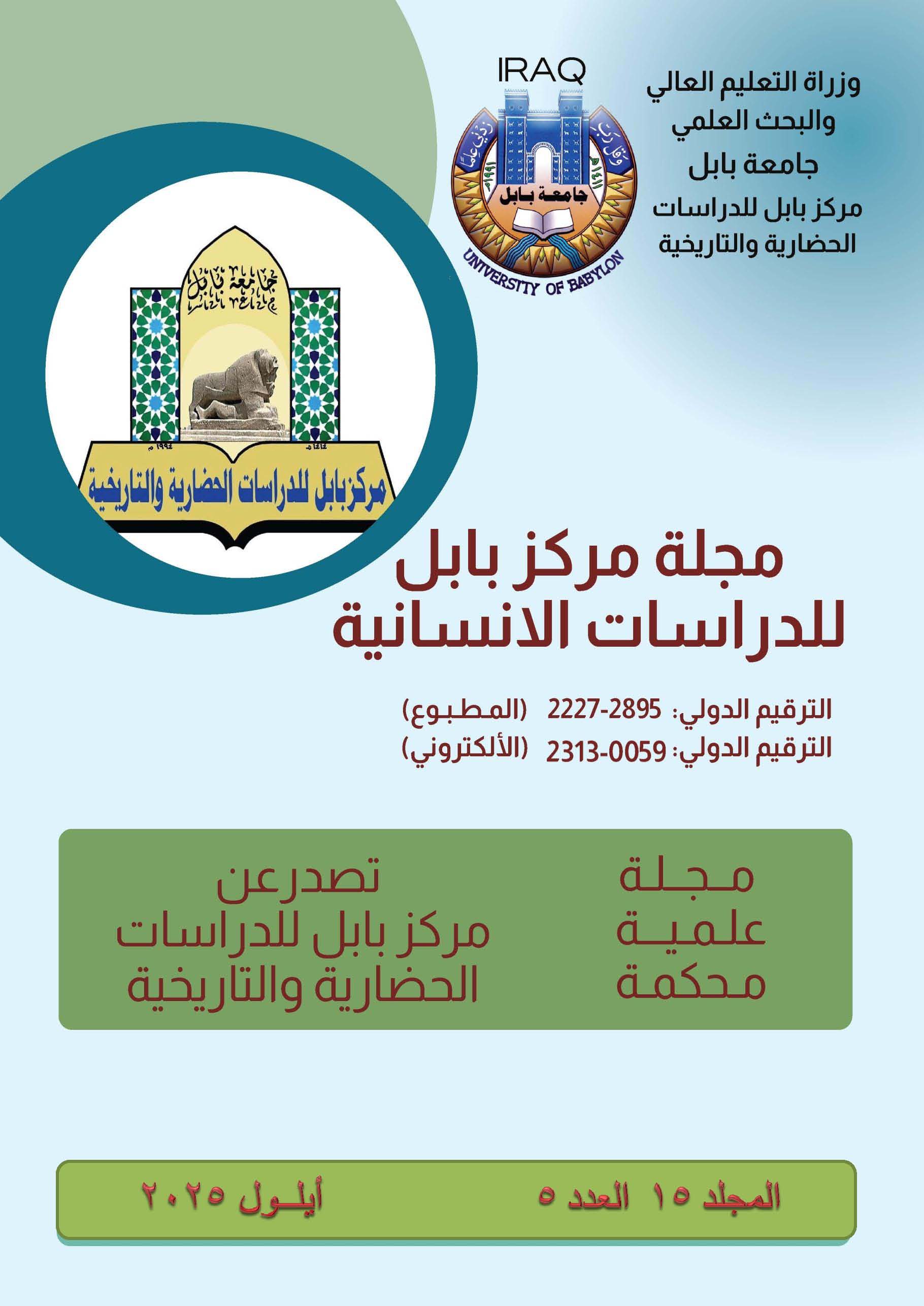Abstract
This research examines the role of the Ottoman jurist Shihab al-Din Ahmad ibn Ismail al-Kurani (d. 885 AH/1480 CE) in judicial and political life during the reign of Sultan Mehmed the Conqueror (855-886 AH/1451-1481 CE). The research aims to reveal al-Kurani\'s multifaceted contributions to establishing the Ottoman judicial system and developing the state\'s Islamic policies, through analyzing his scholarly and practical career that began in the Kurdish region of Kuran and extended through his extensive scholarly journeys in Anatolia, Egypt, the Levant, and Iraq.
Al-Kurani held important judicial positions through which he progressed from teacher at the Suleymaniye School, to mufti of Edirne, then judge of Bursa and Istanbul, ultimately reaching the position of military judge of Anatolia. He also played an influential advisory role to Sultan Mehmed the Conqueror, contributing to the drafting of Mehmed\'s Kanunname (legal code), organizing religious minority affairs, and establishing the waqf (endowment) system.
The research employed analytical and inductive historical methodology, drawing on original Ottoman sources, contemporary biographical works, Sharia court records, and Ottoman archival documents. The research concludes that al-Kurani played a pivotal role in establishing Islamic justice and developing Ottoman jurisprudence through his balanced legal opinions and influential works such as \"Al-Durar fi Ahkam al-Qada\" (Pearls in Judicial Rulings) and \"Al-Fatawa al-Kuraniyya\" (Al-Kurani\'s Legal Opinions), making him one of the most prominent judicial figures in the Ottoman founding era and contributing to establishing a distinctive model for the relationship between scholarly and political authority in the Ottoman state
Al-Kurani held important judicial positions through which he progressed from teacher at the Suleymaniye School, to mufti of Edirne, then judge of Bursa and Istanbul, ultimately reaching the position of military judge of Anatolia. He also played an influential advisory role to Sultan Mehmed the Conqueror, contributing to the drafting of Mehmed\'s Kanunname (legal code), organizing religious minority affairs, and establishing the waqf (endowment) system.
The research employed analytical and inductive historical methodology, drawing on original Ottoman sources, contemporary biographical works, Sharia court records, and Ottoman archival documents. The research concludes that al-Kurani played a pivotal role in establishing Islamic justice and developing Ottoman jurisprudence through his balanced legal opinions and influential works such as \"Al-Durar fi Ahkam al-Qada\" (Pearls in Judicial Rulings) and \"Al-Fatawa al-Kuraniyya\" (Al-Kurani\'s Legal Opinions), making him one of the most prominent judicial figures in the Ottoman founding era and contributing to establishing a distinctive model for the relationship between scholarly and political authority in the Ottoman state
Keywords
Islamic jurisprudence
Mehmed the Conqueror
Ottoman Empire
Ottoman Judiciary
Ottoman politics
Shihab al-Din Ahmad al-Turani
Abstract
يتناول هذا البحث دور الفقيه العثماني شهاب الدين أحمد بن إسماعيل الكوراني (ت. 885هـ/1480م) في الحياة القضائية والسياسية خلال عهد السلطان محمد الفاتح (855-886هـ/1451-1481م). يهدف البحث إلى الكشف عن مساهمات الكوراني المتعددة في تأسيس النظام القضائي العثماني وتطوير السياسات الشرعية للدولة، من خلال تحليل مسيرته العلمية والعملية التي بدأت في منطقة كوران الكردية، وامتدت عبر رحلاته العلمية الواسعة في الأناضول ومصر والشام والعراق.
تولى الكوراني مناصب قضائية مهمة تدرج من خلالها من مدرس في المدرسة السليمانية، إلى مفتي أدرنة، ثم قاضي بورصة وإسطنبول، وصولاً إلى منصب قاضي عسكر الأناضول، كما لعب دوراً استشارياً مؤثراً للسلطان محمد الفاتح، حيث ساهم في وضع قانوننامة الفاتح وتنظيم شؤون الأقليات الدينية ونظام الأوقاف.
اعتمد البحث على المنهج التاريخي التحليلي والاستقرائي، مستنداً إلى المصادر الأصلية العثمانية وكتب التراجم المعاصرة، وسجلات المحاكم الشرعية، ووثائق الأرشيف العثماني، توصل البحث إلى أن الكوراني لعب دوراً محورياً في ترسيخ العدالة الشرعية وتطوير الفقه العثماني من خلال فتاواه المتوازنة ومؤلفاته المؤثرة مثل \"الدرر في أحكام القضاء\" و\"الفتاوى الكورانية\"، مما جعله أحد أبرز الشخصيات القضائية في عصر التأسيس العثماني، وأسهم في إرساء نموذج متميز للعلاقة بين السلطة العلمية والسياسية في الدولة العثمانية
تولى الكوراني مناصب قضائية مهمة تدرج من خلالها من مدرس في المدرسة السليمانية، إلى مفتي أدرنة، ثم قاضي بورصة وإسطنبول، وصولاً إلى منصب قاضي عسكر الأناضول، كما لعب دوراً استشارياً مؤثراً للسلطان محمد الفاتح، حيث ساهم في وضع قانوننامة الفاتح وتنظيم شؤون الأقليات الدينية ونظام الأوقاف.
اعتمد البحث على المنهج التاريخي التحليلي والاستقرائي، مستنداً إلى المصادر الأصلية العثمانية وكتب التراجم المعاصرة، وسجلات المحاكم الشرعية، ووثائق الأرشيف العثماني، توصل البحث إلى أن الكوراني لعب دوراً محورياً في ترسيخ العدالة الشرعية وتطوير الفقه العثماني من خلال فتاواه المتوازنة ومؤلفاته المؤثرة مثل \"الدرر في أحكام القضاء\" و\"الفتاوى الكورانية\"، مما جعله أحد أبرز الشخصيات القضائية في عصر التأسيس العثماني، وأسهم في إرساء نموذج متميز للعلاقة بين السلطة العلمية والسياسية في الدولة العثمانية
Keywords
شهاب الدين أحمد الكوراني، محمد الفاتح، الدولة العثمانية، القضاء العثماني، السياسة العثمانية، الفقه الإسلامي
